Experts have picked the most powerful women in sport: now you choose this year’s stars
To recognise women leading the charge in sport, an expert panel has revealed the 20 most influential athletes. Aussie sport fans can also vote for their favourite star.
Olympics
Don't miss out on the headlines from Olympics. Followed categories will be added to My News.
In this exclusive package ahead of International Women’s Day we name the Top 20 Women in Sport, as picked by an expert panel — and ask you to name your key athletes of the past year.
For women, sport has become a world language, breaking down barriers and becoming a powerful tool for progress and development globally.
And nowhere will this be more evident than next Sunday, March 8 — International Women’s Day — at the Melbourne Cricket Ground, when it’s hoped a sellout crowd for the ICC Women’s T20 World Cup final will set the world record for the highest attendance at a women’s sporting event, eclipsing the 90,185 achieved for the 1999 soccer World Cup final between the US and China.
For cricketer Alyssa Healy, who’ll be playing in that match if Australia makes it to the final, the importance of the occasion isn’t lost. “I think if we‘re able to fill the MCG — and have 100,000 people at a women’s cricket game — that’s going to lift the profile of our game all around the world. People will sit up and take notice,” she says.
To celebrate this historic moment and to recognise the women leading the charge, we asked a specially selected judging panel for their Top 20 Most Influential Women in Australian Sport.
The women they’ve chosen, Alyssa Healy included, have been breaking down barriers for decades, both on and off the field.
Their passion, talent and tenacity have had a lasting impact on the way women’s sport is played and supported in this country and around the world.
Here are the women you can’t ignore …
ALYSSA HEALY
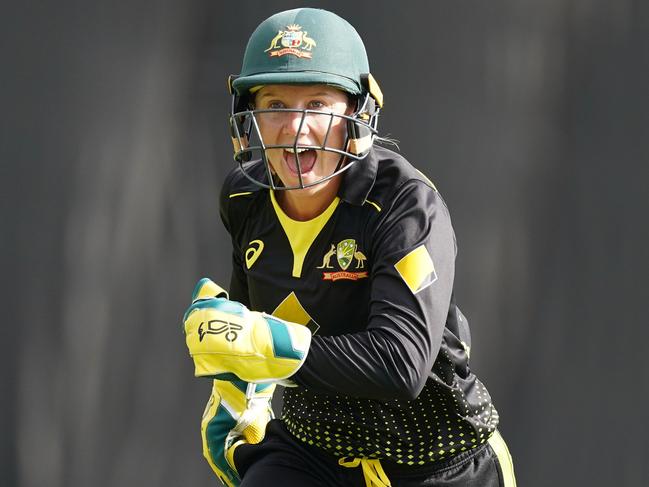
When 16-year-old Alyssa Healy was selected as the first girl to play alongside the boys in her elite private school’s cricket team, it caused quite the ruckus. An anonymous email circulated in the school community and attacked the selection, calling for gender segregation of the cricket team. While hurtful, more telling was that Healy looked outside of cricket for inspiration. Instead, her role models were champion surfer Layne Beachley and professional golfer (and now friend) Karrie Webb. Such was the visibility — or lack of visibility — for women’s cricket at the time.
Fast-forward 14 years and Healy is now one of the most destructive batters on the Australian women’s national cricket team, a superstar behind the stumps — and a role model herself.
“It’s not something that’s come naturally, but I think when it comes to being a role model, all of us [in women’s cricket] have embraced it,” the wicketkeeper reveals. “I feel like I was really lucky I came through at the right time — where women’s cricket has become a ‘thing’. When I was growing up, I was the only girl in all of the teams I was a part of, so it was difficult to find a role model. I never thought I could play for Australia. I just thought I was one of the boys. I never really saw it as a career, but the fact we have access to paid maternity leave now is a game-changer.”
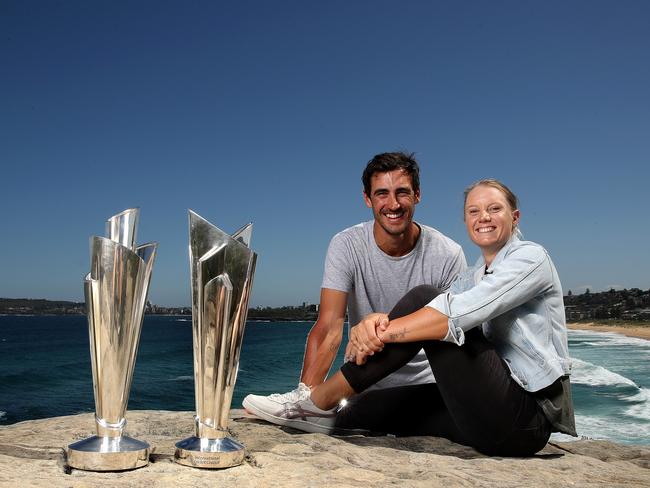
Healy, who turns 30 this month, notes that the parental-leave policy will make a huge difference to female players and help extend their careers. With Healy’s husband Mitchell Starc, 30, in the men’s cricket team, both sides of the policy could really benefit the couple when they decide to start a family.
“I don’t have to put off the thought of having a family — I could do it all and be well supported, and that’s really cool,” Healy says. “Cricket has changed so dramatically that girls can now say they have a future in the game.”
Thanks to the recent changes, young players — both boys and girls — are able to look up to professional cricketers and see what they can achieve. “It’s a great position for our game to be in so we’re really trying to drive and grow it,” Healy explains. “We’ve got some fantastic role models in our team. The whole squad, the way they go about their business both on and off the field, is all about doing the right things to show the next generation.”
ASH BARTY
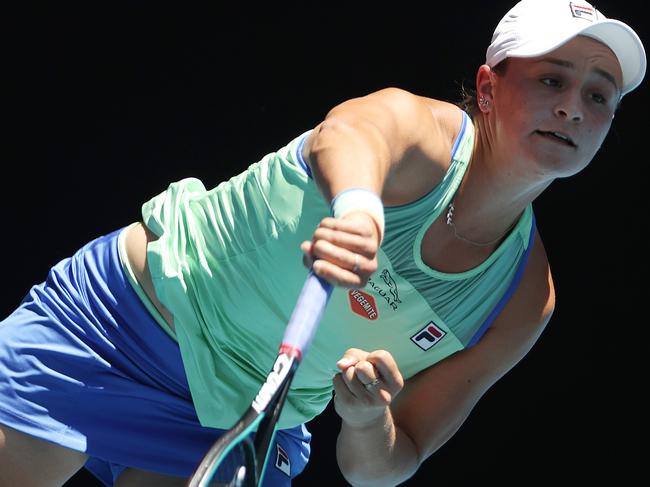
When it comes to humble sporting stars, they don’t get more down-to-earth than 23-year-old tennis champ Ash Barty. An inspiration to Australians both young and old, the Queensland-
based player has enjoyed a meteoric rise since returning from a two-year
hiatus in 2016.
After trying her hand at cricket in the 2015 inaugural Women’s Big Bash League, Barty went on to win her first World Tennis Association title in Kuala Lumpur in 2017, her second at the Nottingham Open in 2018 and her first Grand Slam singles title at the French Open in 2019.
Despite her incredible success, Barty remains a class act both on and off the court.
After receiving The Don Award in 2019, from the Sport Australia Hall of Fame, the world No. 1 partnered with Tennis Australia’s #PlayForYou campaign in a bid to motivate girls and women to keep playing sport.
It’s this dedication to making sport more accessible that saw her named Young Australian of the Year in 2020. A proud Aboriginal Australian, Barty also serves as the National Indigenous Tennis Ambassador for Tennis Australia.
CHARLOTTE CASLICK
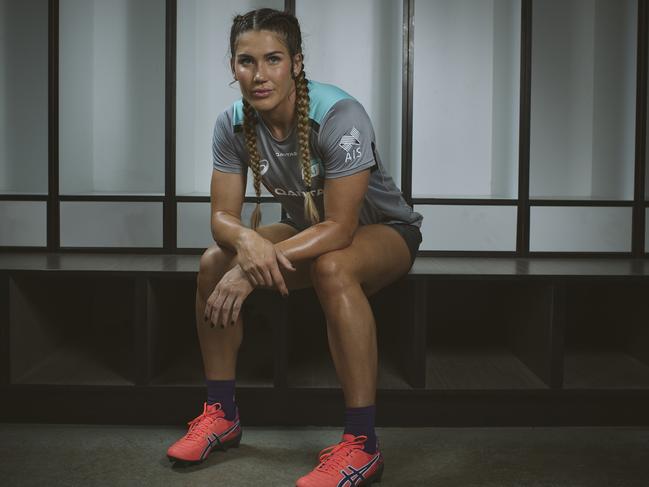
Her slim form may not fit the traditional rugby body type, but when Caslick played a pivotal role in securing gold for the Australian Rugby Sevens team at the 2016 Rio Olympics, she proved you don’t have to look a certain way to be successful.
In recent years, Australia’s women’s sevens has achieved equity with Super Rugby in terms of entry-level pay rates and in regards to growing the game, and Caslick has been a standout role model.
HOT TIP FOR TOKYO: SEE MORE FROM CHARLOTTE AT THE END OF THIS STORY
STEPHANIE GILMORE
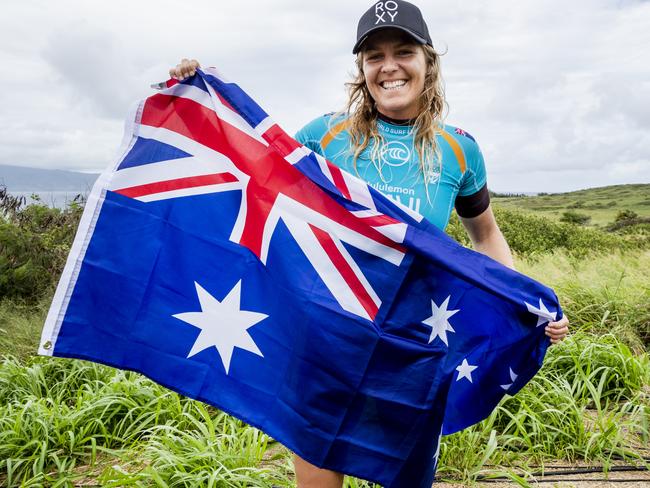
Gilmore captured her first world title in 2007 and now boasts seven world crowns — taking her level with Layne Beachley.
Still only 32, she is likely to surpass Beachley and go down as the sport’s greatest female surfer. Gilmore has used her platform to raise awareness of the gender pay gap in her sport.
In 2018, her efforts paid off when the World Surfing League announced it would offer equal prize money for men and women on the pro circuit.
CATE CAMPBELL
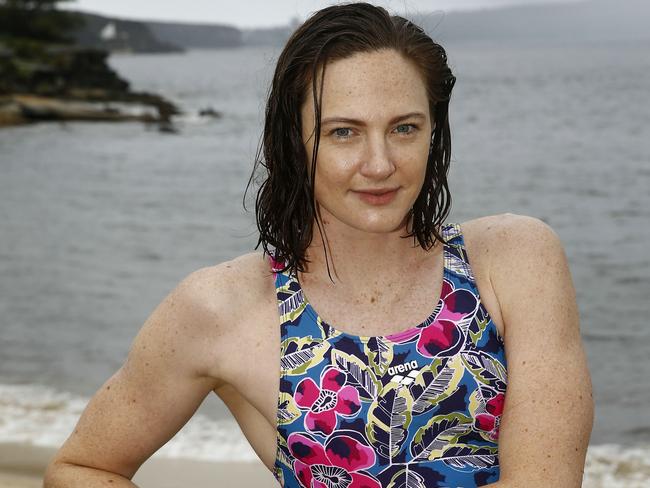
With three Olympics and multiple World Championship wins to her name, Cate Campbell, 27, is one of our most recognisable female athletes.
And she’s finally being rewarded for her efforts after joining her peers in standing up to the sport’s governing body, FINA. Campbell has also been open about her struggles with body image and now shares her message that “the sum of your worth is so much more than what you look like”. And that alone makes her worthy for this list.
SUSAN ALBERTI
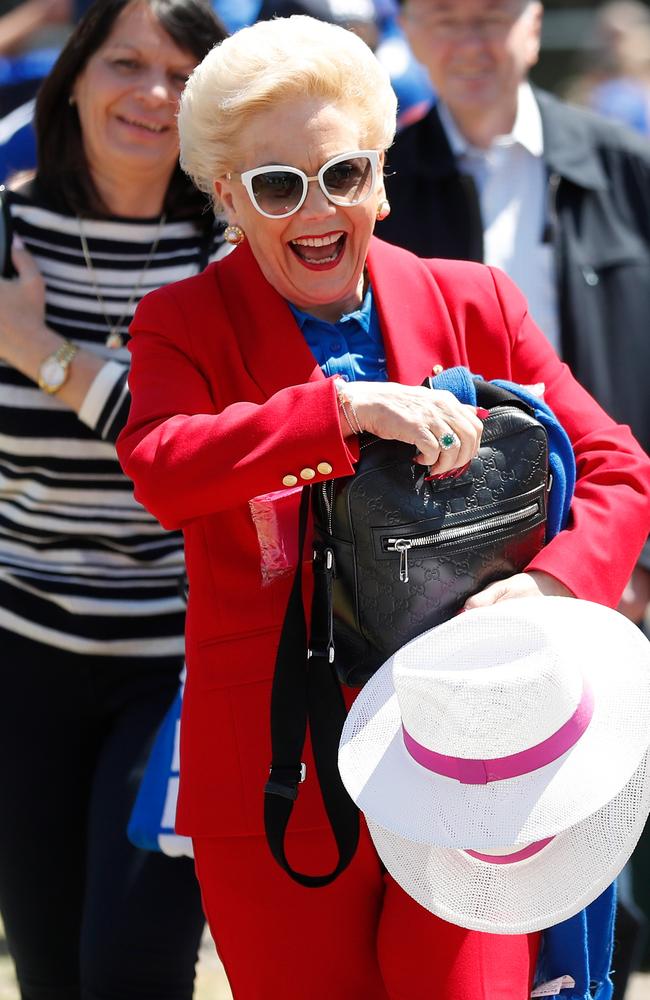
A successful businesswoman, philanthropist and former awareness vice-president of the Western Bulldogs, Susan Alberti, 72, is used to forging her own path in arenas typically ruled by men.
A keen supporter of women in sport, Alberti played a significant role in developing the AFL women’s competition — a feat that saw her crowned Victorian of the Year in 2018.
BE THE MOMENT: Follow the WT20 on Fox Sports and Kayo
TV SPECIAL: Foxtel’s week-long women’s sport pop-up channel
RAELENE CASTLE
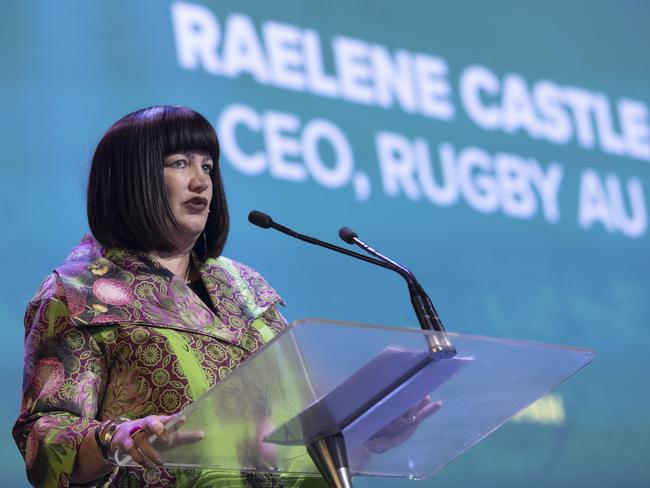
As chief executive of Rugby Australia (and its first female head), Raelene Castle, 49, isn’t afraid of making waves.
Australia-born and raised in New Zealand, Castle has held a number of high-ranking positions, such as CEO of Netball New Zealand and of the Canterbury-Bankstown Bulldogs.
Castle is also co-founder of Minerva Network, an organisation that connects women in sport with businesswomen, helping to further sportswomen’s careers on and off the field.
SAM KERR
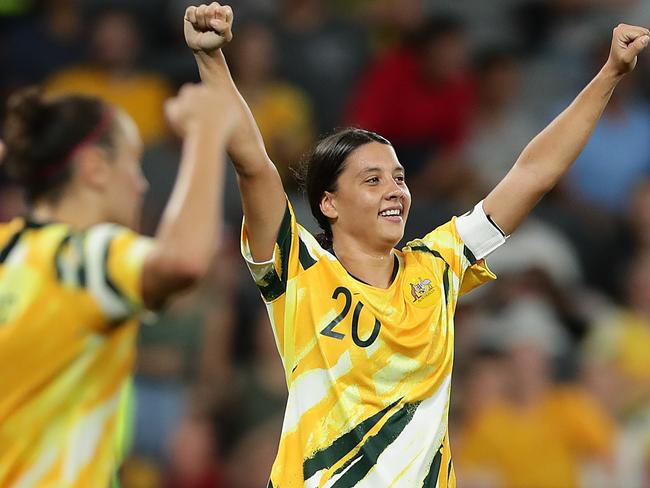
Worldwide face of the Nike brand and a vital part of the Australian team heading into the Olympics, Sam Kerr, 26, is often credited for putting Australian women’s soccer on the world map.
But it’s not just her skills and trademark backflips that have made her a global name.
Chelsea Football Club’s newest star is also a role model for up-and-coming soccer players — something she didn’t have growing up.
“I didn’t have many female role models except for Cathy Freeman when I was a kid,” reveals Kerr. “Having influence is an important thing and I think about my actions a lot and how they come across to the younger generation.”
LIZ CAMBAGE
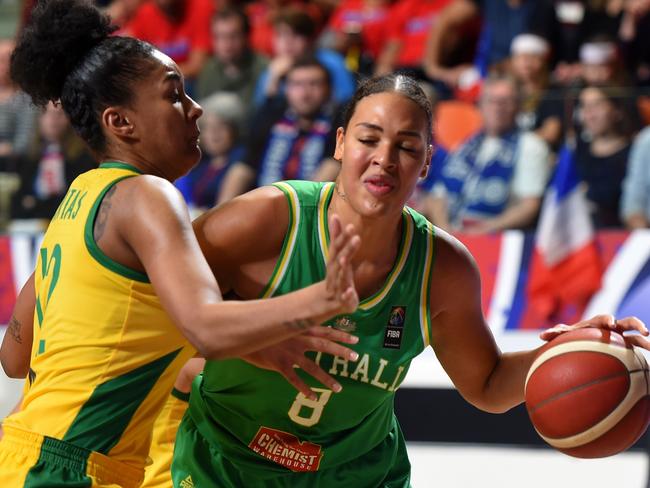
At 28, Liz Cambage is a household name not just in Australia but also in the US, where she holds the Women’s National Basketball Association record for most points scored in a single game (53).
She also helped the Opals win bronze at the London Olympics and will be a key player in Tokyo.
An advocate for gender equality in basketball, Cambage frequently uses her platform to raise awareness for mental health and shares updates on her own battle with depression and anxiety.
ARIARNE TITMUS
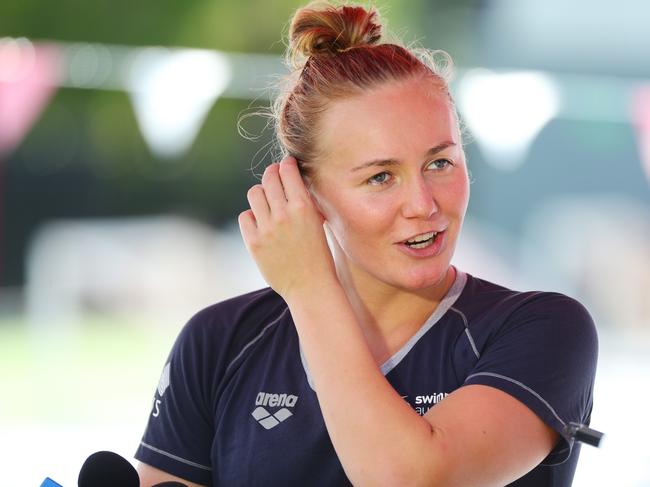
In 2019, Titmus accomplished something no-one had before by dethroning reigning Olympic champ Katie Ledecky in the 400m freestyle at the FINA World Championships.
The 19-year-old will carry Olympic-sized expectations into Tokyo 2020 — expect The Terminator to become a household name.
REBECCA FRIZELLE
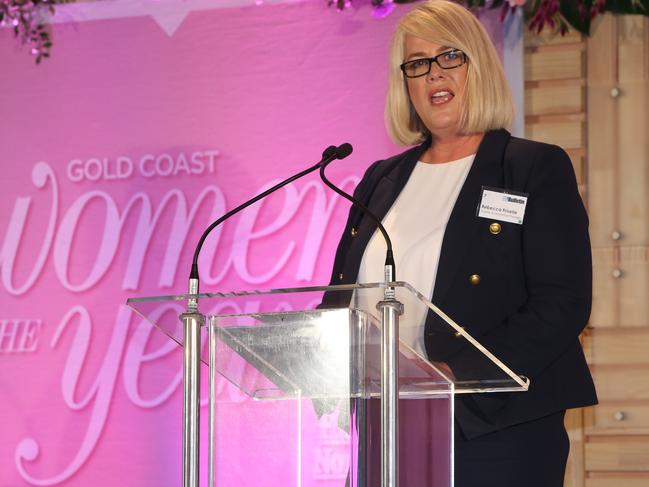
The Gold Coast Titans owner’s contribution to supporting women in sports cannot be overstated.
She became the NRL’s first female club chair in 2014 before stepping down to launch her bid to co-purchase the Titans.
Frizelle is a driving force behind bringing more women into the NRL at both community and board levels, and uses her extensive network to support women — on and off the field.
ELLYSE PERRY
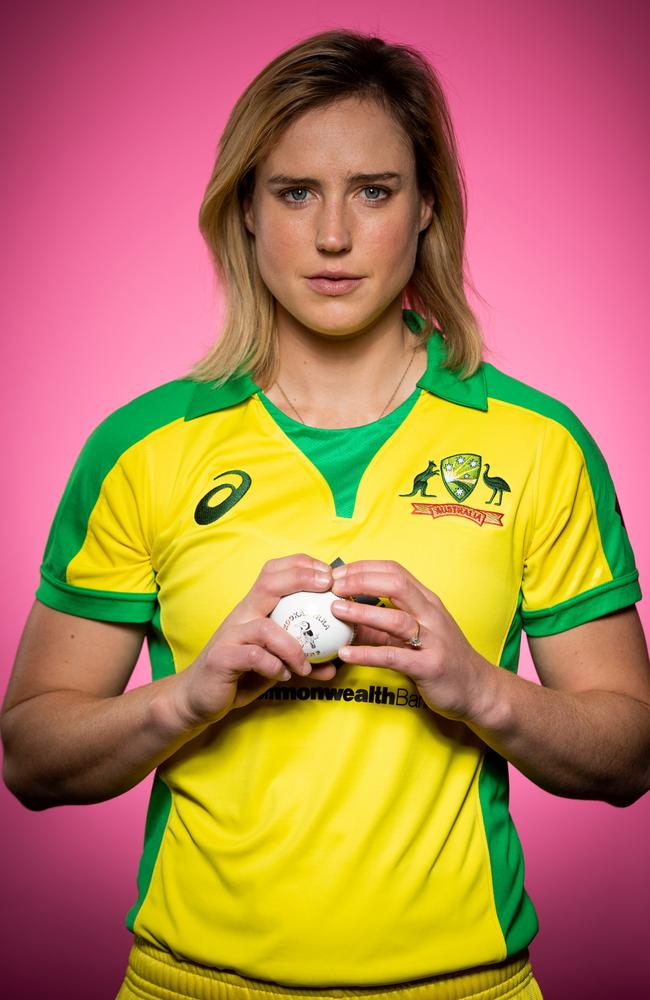
She’s been ICC International Women’s Cricketer of the Year twice, has won multiple awards and in 2019 became the first cricketer — woman or man — to score 1000 runs and 100 wickets in T20 international cricket.
The 29-year-old is also a fierce supporter of women in sport, and it’s thanks to Perry and her teammates that women’s cricket has enjoyed an increase in both pay and audience turnout.
“If kids can turn on the TV and see other girls playing cricket and decide they want to do it too, then I’ve served my purpose,” she says.
PEGGY O’NEAL
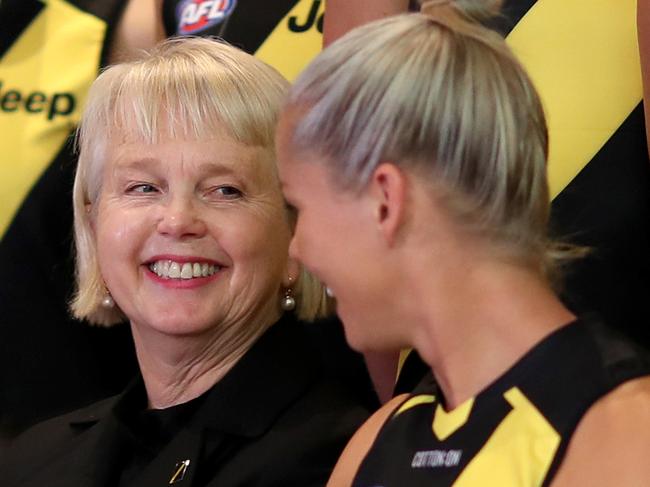
The first female AFL-club president, O’Neal, 67, is a powerhouse.
Originally a lawyer, the Richmond president was awarded an Officer of the Order of Australia (AO) last year for distinguished service not only to Australian rules football, but also to superannuation and finance law, and to the advancement of women in leadership roles.
LYNNE ANDERSON
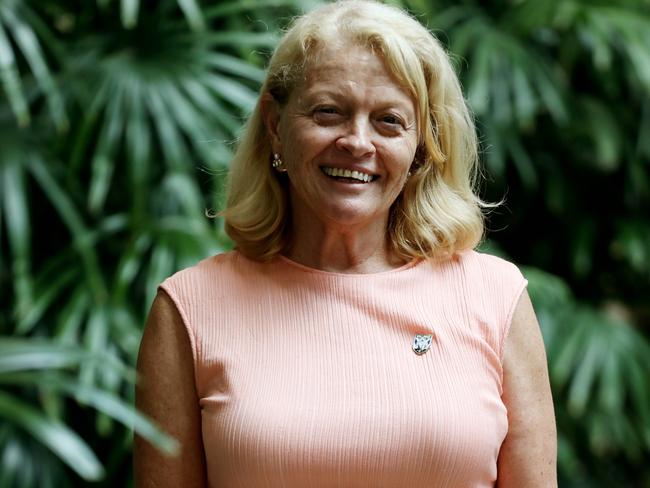
Breaking glass ceilings is what Anderson does best.
The CEO of Paralympics Australia has spent years advocating for — and securing — equal rights for para-athletes.
In 2019, her talks with the Government were instrumental in the Paralympic team receiving $8 million towards the 2020 Games and another $4 million for the construction of a community, education and events centre in Victoria.
TAYLA HARRIS
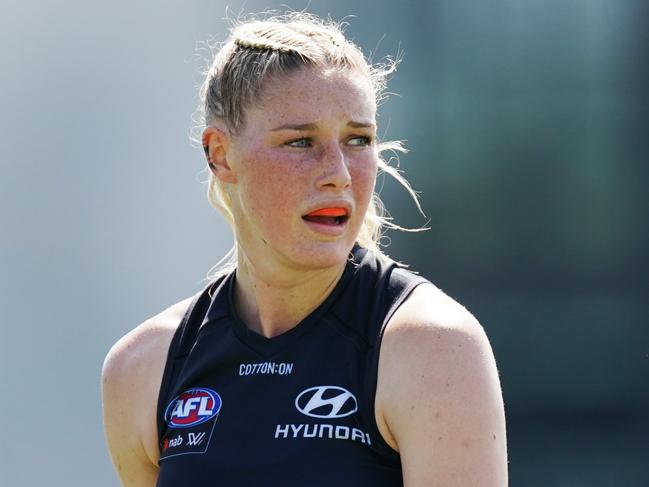
It was one of football’s most talked-about kicks.
When a photo of the Carlton AFLW player was swamped with sexist comments online, Seven removed the image, causing an even bigger controversy.
The image was reposted with an apology for sending the wrong message. Harris herself regards the moment as a turning point for Australian society.
KATIE PAGE
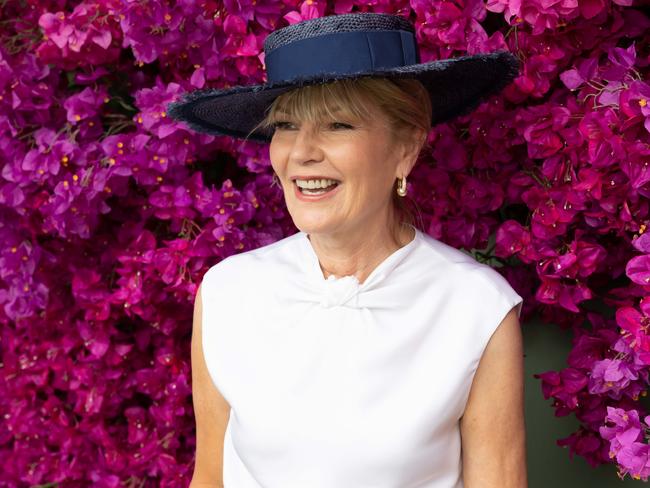
As the first woman to be elected to the board of the NRL in 2004, Harvey Norman chief executive Katie Page has been a backer of women in sport for decades.
With a goal to level the playing field, Page, 64, has spent millions of dollars in sponsorship money to create new pathways for women in NRL, AFL, netball, motor racing, soccer and horse racing, and her Team Harvey Junior initiative supports young female sports teams to help them work towards a professional career in sports.
BELINDA CLARK
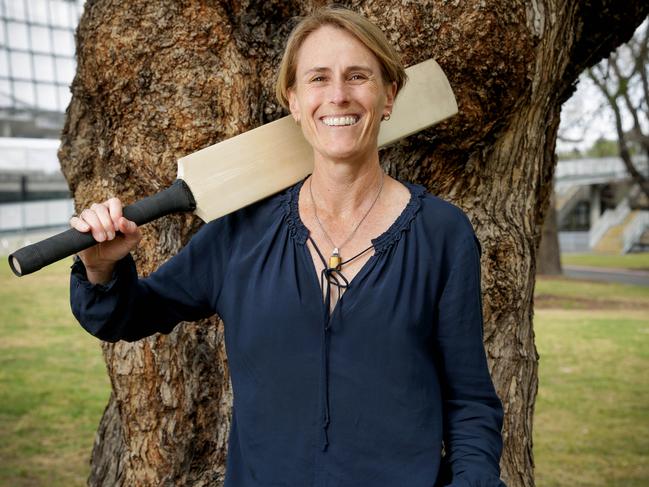
She’s been a player and captain, the CEO of Women’s Cricket Australia and is currently executive general manager of Community Cricket at Cricket Australia.
To honour her service to cricket — and her dedication to developing new pathways for women and girls — Clark was made an Officer of the Order of Australia in 2018.
DAISY PEARCE
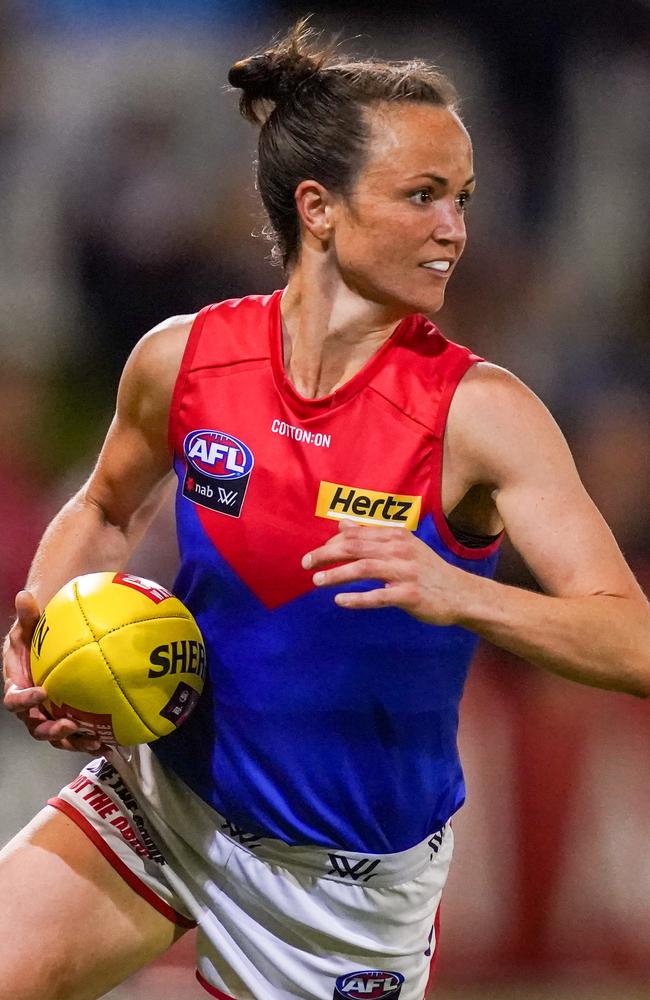
In 2016, Pearce, now 31, made history when she was selected to play in the inaugural AFL women’s competition — and to be its public face.
The first (and current) captain of her Melbourne Football team, Pearce returned to the field this season following the birth of twins Sylvie and Roy in 2019.
“I’m able to show girls there are more pathways to a pro sporting career than ever before,” she says.
CATHY FREEMAN
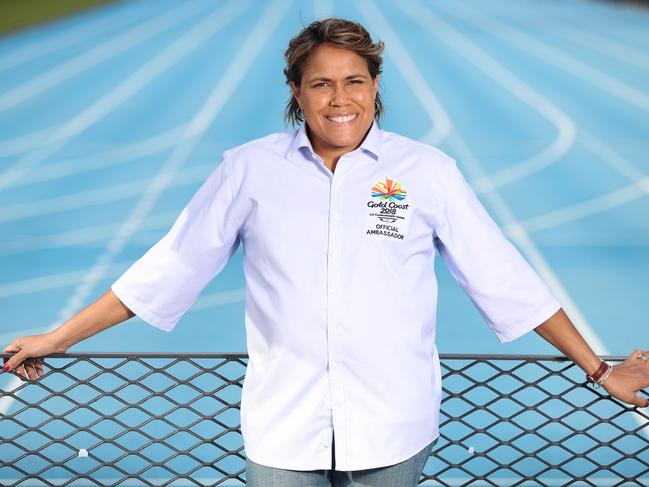
Even after 20 years, Cathy Freeman sprinting across the finish line at the 2000 Olympic Games is still an iconic image.
The win made Freeman, now 47, the first Indigenous Australian to win an individual Olympic gold medal and inspired a new generation of Indigenous athletes.
After her retirement, she created the Cathy Freeman Foundation to help close the gap in education for indigenous children; and in 2018 was awarded an Order of Merit by the Australian Olympic Committee for her achievements in and contributions to sport.
STEPHANIE BELTRAME
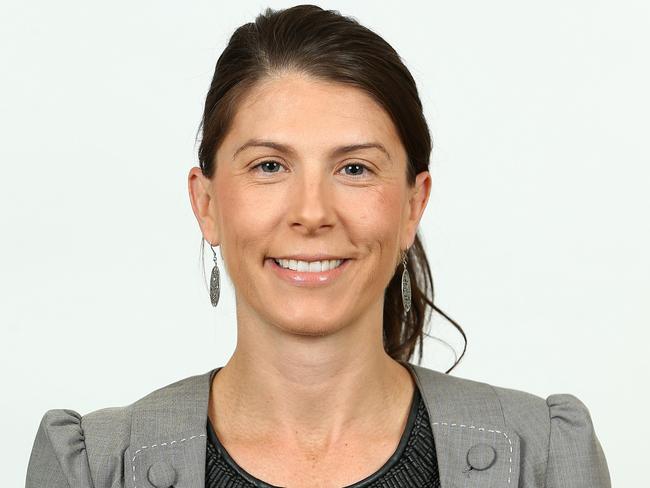
As GM of Broadcasting and Commercial at Cricket Australia, Beltrame is behind the major media negotiations bringing big money to the sport, such as the blockbuster deals that saw Nine bid big for international cricket and Ten take on the Big Bash League in 2013.
She continues to develop the sport through historic deals like the current billion-dollar contract with FOX SPORTS and Seven West Media.
CHARLOTTE IS THE HOTTEST PROPERTY
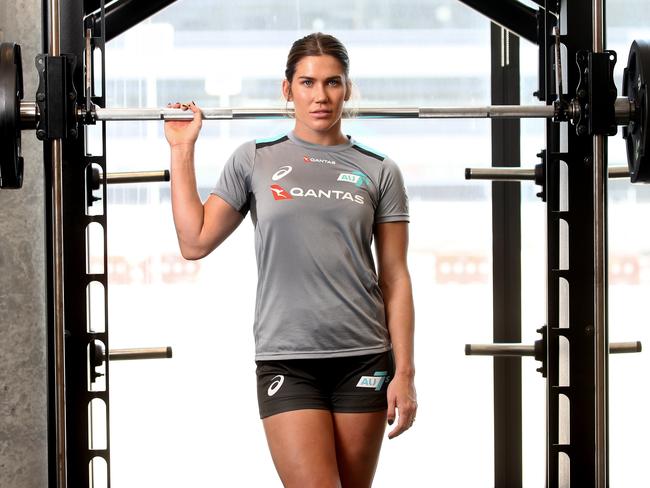
OLYMPIC gold medallist Charlotte Caslick has become footy’s hottest property.
Well actually the whole rugby sevens women’s team is smoking at the moment with the side getting ready for Tokyo by using hi-tech heat chambers to prepare.
On an average day in July, the temperature in Tokyo can reach highs of 35°C and humidity ranges from about 78 per cent relative humidity to 83 per cent — and this can lead to heavy fatigue during the course of the sevens cutthroat format.
To acclimatise for the conditions, the Aussie women’s team has been using a heat chamber that is part of UTS Sports Science facilities located on the floors above Rugby Australia’s headquarters at Moore Park in Sydney.
“We’ve been jumping on the stationary bikes in the heat chamber, we’ve been trying to replicate game time so this week we did six 15-minute sessions … we do a heat session every week but we’ve really amped it up,” Caslick, 24, said.
“We’ll be playing in such a humid environment, we hope it will help us. It’s a bit like Bikram yoga and it’s disgusting – the temperature says 38 degrees but will all our bodies in there I’m sure it’s hotter and the humidity is like 90.
“We’re working a lot of acclimatising and getting ready for the heat — even when I hurt my hamstring and wasn’t on the bike, I would have to train in the gym in a tracksuit.”
Originally published as Experts have picked the most powerful women in sport: now you choose this year’s stars
